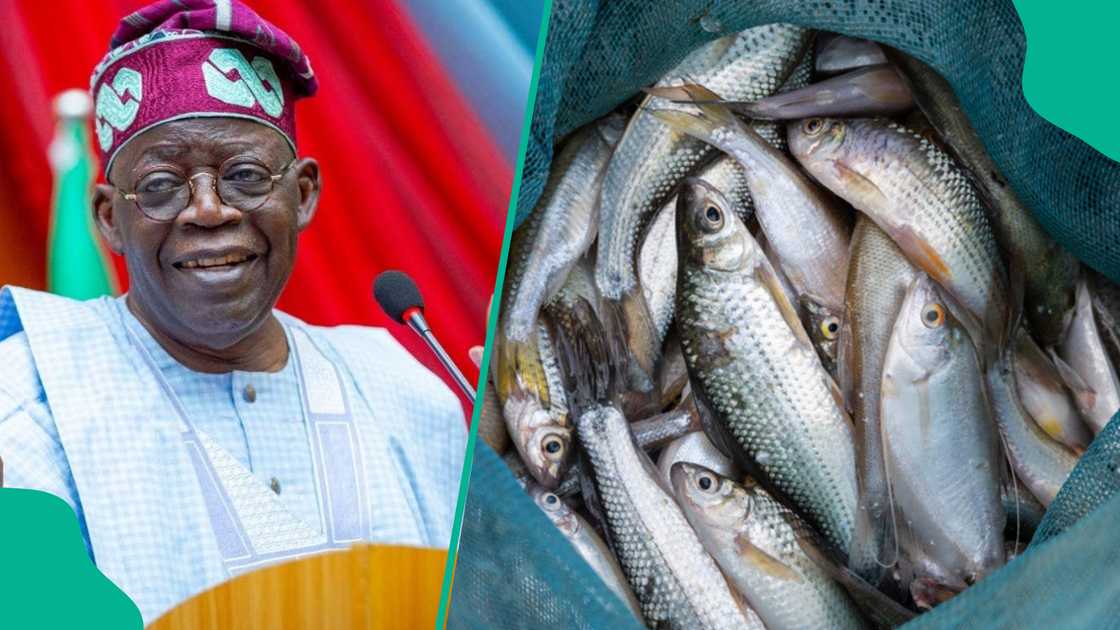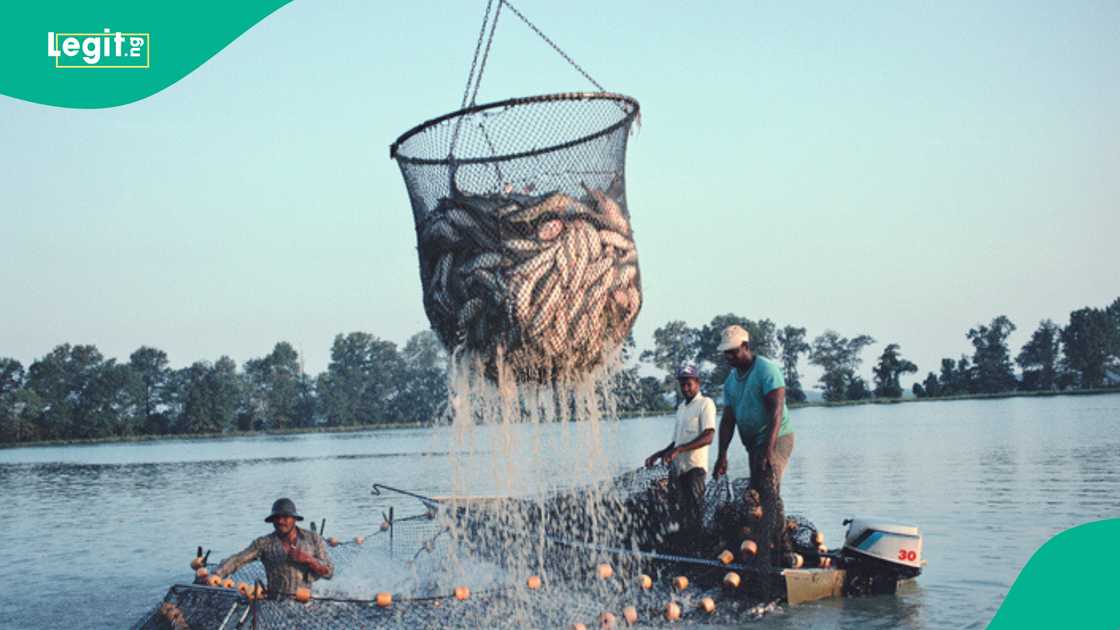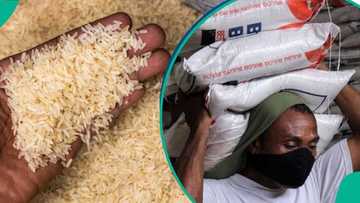Nigerians Fear Fish Import Ban as FG Targets $800m Reduction With New Investments
- The Nigerian government is working to reduce its reliance on fish imports, aiming to cut spending from $1.2 billion to $800 million annually by boosting domestic fish production
- Minister Adegboyega Oyetola outlined plans to make aquaculture a major source of employment, food security, and export competitiveness, with a focus on supporting women and youth
- The Ministry is also addressing industry challenges like overfishing and financing through partnerships and policy initiatives, including working with the Nigerian Agricultural Insurance Corporation and the World Bank
Legit.ng journalist Zainab Iwayemi has 5-year-experience covering the Economy, Technology, and Capital Market.
To increase domestic fish output and lessen its dependency on imports, the federal government is taking major action.

Source: UGC
Nigeria currently spends about $1.2 billion a year on fish imports, but with the correct investments and programs, it hopes to reduce that amount to about $800 million a year.
Adegboyega Oyetola, the Minister of Marine and Blue Economy, pledged to drastically increase domestic fish output in order to accomplish this aim and eliminate Nigeria's reliance on fish imports.
At a high-level consultative meeting with fisheries cooperative organizations in Abuja on Wednesday, the Minister presented a daring plan to turn the country's aquaculture industry into a major employer, source of food security, and export competitiveness.
Oyetola emphasized that the Federal Government is totally dedicated to assisting the fisheries and aquaculture subsector through policy, technical assistance, and financial inclusion, saying that "Nigeria must chart a new course towards self-sufficiency in fish production."
“We will scale up domestic fish production, reduce dependency on imports, and reposition the sector for sustainable growth,” he said.
Leaders and representatives from important fisheries and aquaculture organizations, such as the Fisheries Cooperative Federation of Nigeria (FCFN), Tilapia Aquaculture Developers Association of Nigeria (TADAN), Catfish Farmers Association of Nigeria (CAFAN), Women in Fish Farming and Aquaculture, and the Practicing Farmers Association of Nigeria, attended the meeting, which was organized by the Federal Ministry of Marine and Blue Economy.
Daily Trust reported that with start-up grants and other empowerment programs already in the works, Oyetola declared that the Ministry is stepping up its efforts to assist women and young people in the fishing industry.
He claimed that this action is in line with President Bola Ahmed Tinubu's Renewed Hope Agenda, which places a high priority on economic diversification and youth involvement.
“Increasing youth participation in aquaculture is not only vital for food production but also a key solution to reducing unemployment,” the Minister said. “We are committed to ensuring that young people and women are not left behind in this transformation.”
Participants in the interactive session brought up a variety of urgent issues that the industry is now dealing with. Overfishing, environmental damage, lack of access to affordable financing, losses after harvest, poor cold storage facilities, poor market connections and transportation, low youth participation, multiple taxes by local government officials, and the growing price of imported fish feed were some of these.
Minister Oyetola addressed these worries by providing firm assurances that the Ministry is already involving local and foreign players to address the issues directly.

Source: Getty Images
He disclosed that the Ministry will be working with the Nigerian Agricultural Insurance Corporation (NAIC) to guarantee accessible and affordable insurance coverage for fish farmers nationwide, and that talks are still in progress with the World Bank to obtain financial assistance for fish farmers.
“We are also in talks with the Federal Ministry of Water Resources to replicate the successful aquaculture model at the Oyan Dam in other parts of the country,” he added, pointing to integrated planning and inter-ministerial cooperation as key pillars of the strategy.
“This meeting is not the end — it is the beginning of a sustained and transformative dialogue,” the Minister assured.
Student who started fish farm becomes successful
Legit.ng reported that the student, Ikeanyi Chinaza, popularly Lagos Farm Girl, said she started learning fish farming from her uncle when she was in her state, Anambra.
She took the lessons she learned to Lagos where she has now set up her own farm known as Miraj Foods and Fishery.
The lady is currently a final-year student studying Pure and Applied Science, but she ventured into entrepreneurship.
Proofreading by James Ojo, copy editor at Legit.ng.
Source: Legit.ng





